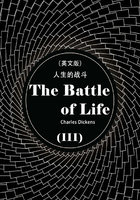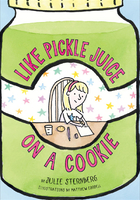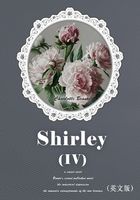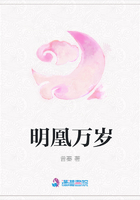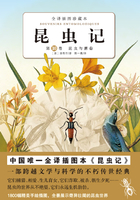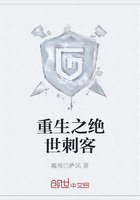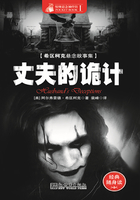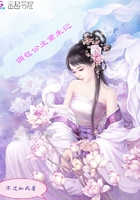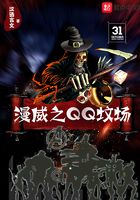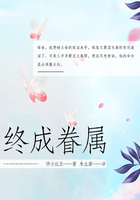Advice to a Beginner
February 16, 1975
Dear Soen-sa-nim,
Wednesday evening I attended a discussion you presented at Yale with the assistance of two students. I was keenly interested in merely seeing you and in hearing your words and in seeing other interested people, because my interest in Zen has so far developed solely through my own efforts, and my knowledge of it has come only through books. And this approach has made Zen seem remote and inapplicable to this time and life. This has, in turn, generated some feelings that my interest in Zen is an unhealthy attempt to escape this world that I do not understand. Seeing other live people, functioning with ease in this world, relieves some of those feelings and encourages my interest in Zen. This direct experience with Zen also releases a flood of questions about Zen practice. And, finally, we arrive at the point of this letter.
Can you recommend a specific method of zazen for a beginner? I have been practicing about one month, sitting, counting exhalations to ten. Do you recommend I continue this method or change? Also, can you give advice on the way to function day-to-day prior to a final understanding? I try doing what has to be done without discursive thinking, with some success; but I have not dispelled a conviction that there is or should be a more concrete guideline for action. I think, particularly, about certain precepts I've read, sixteen in all. Are these precepts just for those who have attained understanding-ways of acting that come only from that understanding? Or can they be applied externally to one without the final understanding, serving as a reference point for actions along the way to attaining understanding?
I have also read of an event termed sesshin in which lay people spend a week or so at a temple or center to practice and speak with a Master. Do your centers have such events? If so, please forward specific details.
I am also encountering some confusion in the relation of actual practice to the verbal history of Zen, verbal examples and explanations of the final understanding, etc. I have read histories, examples, and explanations enough to feel I agree intellectually and can comprehend with my reason. But I do not understand in my bones, because there has been no direct experience. So, I agree with those who say that we can't reach understanding through words; it must come through practice. But you use words to help students understand. And I don't understand. In reading, I have thought and thought and always come to that brick wall beyond which words cannot go. So I've pretty much stopped trying to reason out what the words may indicate and try only to practice, sitting zazen and thinking about who or what writes these words, eats, sleeps, etc. But I wonder if I am giving up on words without truly exhausting them? I fear this is a confused accounting of confused thoughts, but perhaps you can see through all my delusions.
I have taken enough of your time and greatly appreciate your attention to my questions.
Sincerely,
Patricia
February 23, 1975
Dear Patricia,
Thank you for your letter. How are you?
In your letter, you said that you have read many books about Zen. That's good. But if you are thinking, you can't understand Zen. Anything that can be written in a book, anything that can be said-all this is thinking. If you are thinking, then all Zen books, all Buddhist sutras, all Bibles are demons' words. But if you read with a mind that has cut off all thinking, then Zen books, sutras, and Bibles are all the truth. So is the barking of a dog or the crowing of a rooster: all things are teaching you at every moment, and these sounds are even better teaching than Zen books. So Zen is keeping the mind which is before thinking. Sciences and academic studies are after thinking. We must return to before thinking. Then we will attain our true self.
In your letter you said that your practice has been counting exhalations to ten. This method is not good, not bad. It is possible to practice in this way when you are sitting. But when you are driving, when you are talking, when you are watching television, when you are playing tennis-how is it possible to count your breaths then? Sitting is only a small part of practicing Zen. The true meaning of sitting Zen is to cut off all thinking and to keep not-moving mind. So I ask you: What are you? You don't know; there is only "I don't know." Always keep this don't-know mind. When this don't-know mind becomes clear, then you will understand. So if you keep don't-know mind when you are driving, this is driving Zen. If you keep it when you are talking, this is talking Zen. If you keep it when you are watching television, this is television Zen. You must keep don't-know mind always and everywhere. This is the true practice of Zen.
The Great Way is not difficult
if you do not make distinctions.
Only throw away likes and dislikes,
and everything will be perfectly clear.
So throw away all opinions, all likes and dislikes, and only keep the mind that doesn't know. This is very important. Don't-know mind is the mind that cuts off all thinking. When all thinking has been cut off, you become empty mind. This is before thinking. Your before-thinking mind, my before-thinking mind, all people's before-thinking minds are the same. This is your substance. Your substance, my substance, and the substance of the whole universe become one. So the tree, the mountain, the cloud, and you become one. Then I ask you: Are the mountain and you the same or different? If you say "the same," I will hit you thirty times. If you say "different," I will still hit you thirty times. Why?
The mind that becomes one with the universe is before thinking. Before thinking there are no words. "Same" and "different" are opposites words; they are from the mind that separates all things. That is why I will hit you if you say either one. So what would be a good answer? If you don't understand, only keep don't-know mind for a while, and you will soon have a good answer. If you do, please send it to me.
You asked why I use words to teach, if understanding through words is impossible. Words are not necessary. But they are very necessary. If you are attached to words, you cannot return to your true self. If you are not attached to words, soon you will attain enlightenment. So if you are thinking, words are very bad. But if you are not thinking, all words and all things that you can see or hear or smell or taste or touch will help you. So it is very important for you to cut off your thinking and your attachment to words.
Here is a poem for you:
Buddha said all things have Buddha-nature.
Jo-ju said the dog has no Buddha-nature.
Which one is correct?
If you open your mouth, you fall into hell.
Why?
KATZ!!!
Clouds float up to the sky.
Rain falls down to the ground.
Sincerely yours,
S.S.
P.S. Sesshin is the Japanese name for "meditation retreat." In Korean the name is Yong Maeng Jong Jin, which means "when sitting, to leap like a tiger." We have one retreat every month at each of our centers: a seven-day retreat in Providence, from the first to the seventh of every month; and three-day retreats in New Haven (beginning the second Friday of the month), in Cambridge (beginning the third Friday), and in New York (beginning the fourth Thursday). You are welcome to come to any of these retreats.
April 6, 1975
Dear Soen-sa-nim,
Thank you for your reply to my last letter. I have been trying to do as you advised, keeping don't-know mind in every activity, but with difficulty. Often, the difficulties involved get me down, for it seems next to impossible to clear out all the rubbish I've accumulated over the years. As my mind returns to the question of whether the mountain and I are the same or different, I often cry and often leave the question. It seems an overwhelming question.
At the beginning, I was very enthusiastic and cheerful and industrious. My enthusiasm wanes and I am not very cheerful or industrious and realizing this makes me even less cheerful. What advice for a failing spirit?
I look forward to the opening of a Zen Center in New Haven. Perhaps the fellowship and opportunity to speak with you and others will revitalize my practice.
Most sincerely,
Patricia
April 11, 1975
Dear Patricia,
Thank you for your letter. You say that keeping don't-know mind is difficult. If you check your thinking mind, then it is difficult. You mustn't check your thinking mind. Thinking is okay; don't worry about it. If you are not upset by your thinking, then it is not difficult to keep don't-know mind. At first you will be able to keep it only for a short time. But if you practice with sincerity, it will keep growing by itself.
Your mind is like the sea. When the wind comes, there are very big waves. When the wind dies down, the waves become smaller and smaller, until finally the wind disappears altogether and the sea is like a clear mirror. Then mountains and trees and all things are reflected on the surface of the sea. There are many thought-waves now in your mind. But if you continue to practice don't-know mind, this thinking will become gradually smaller, until finally your mind will always be clear. When the mind becomes clear, it is like a mirror: red comes and the mirror is red; yellow comes and the mirror is yellow; a mountain comes and the mirror is a mountain. Your mind is the mountain; the mountain is your mind. They are not two. So it is very important not to be attached either to thinking or to not-thinking. You mustn't be upset by anything that goes on in your mind. Only don't worry and keep don't-know mind.
You say that in the beginning you were enthusiastic and now you are discouraged. Both extremes are no good. It is like a guitar string: if you make it too tight, it will be out of tune and will soon snap; if you make it too loose, it will still be out of tune and will not play. You must tune it just right. Too enthusiastic is no good, too discouraged is also no good. Zen mind is everyday mind. You must keep this mind during every action-eating, talking, playing tennis, watching television. Always keep don't-know mind. What is most important is how you keep your mind at this very moment. Just-now mind. If you have free time, it is good to sit. If you don't have free time, then just do action Zen. But be very careful about wanting enlightenment. This is a bad Zen sickness. When you keep a clear mind, the whole universe is you, you are the universe. So you have already attained enlightenment. Wanting enlightenment is only thinking. It is something extra, like painting legs on the picture of a snake. Already the snake is complete as it is. Already the truth is right before your eyes.
Our New Haven Zen Center will be opening soon. It is very true that contact with other Zen students will help your practice. Together-action is very important for Zen students. Bowing together, chanting together, sitting together, eating together-this means that your own situation, your condition, and your opinions can disappear much more easily. Zen work is becoming empty mind. Becoming empty mind means having all your opinions fall away. Then you will experience true emptiness. When you experience true emptiness, you will attain your true situation, your true condition, and your true opinions. I hope that you will come often to the New Haven Zen Center, do hard training, soon attain enlightenment, and save all people from suffering.
Sincerely yours,
S. S.
April 14, 1975
Dear Soen-sa-nim,
Thank you so much for your reply to my letter. It was encouraging and has helped steady my practice and mind.
I am still having some difficulty in practice, however. When I first became keenly interested in Zen, about four months ago, it was after reading some books about Zen. These books served to shatter most remaining structural beliefs for my life and set me adrift. I realized then that I did not understand anything, so everything became a question. Now, in practice, if I ask "Who am I?", I know I do not know. It is, therefore, difficult to question in that particular sense with much intensity. I can listen and watch, but it is difficult to question specifically because I have no particular point from which to direct a question. I guess I am worrying about the form of the question, which is irrelevant, and should, instead, just question, in whatever form, with all my being. Is this correct?
There is one more thing I would like to comment upon. Now that I am more fully accepting Zen as a natural function in my life, I feel a strong infusion of love; through your letters, through Mu Gak and other students I have talked with, and in and through myself. I love my family and friends as never before, and this world seems more wonderful than I will ever know. Even if I never attain enlightenment, Zen practice will still have granted me so much for which to be grateful.
Sincerely yours,
Patricia
May 3, 1975
Dear Patricia,
Thank you for your letter. Please excuse my lateness in answering, but I was in New York until a few days ago, for the opening of our Zen Center there, and your letter was not forwarded. So I didn't receive it until yesterday.
You said that we have helped your practice. This is very good. Zen practice is of the greatest importance. You must decide to practice and very strongly keep this decision. This requires great faith, great courage, and great questioning.
What is great faith? Great faith means that at all times you keep the mind which decided to practice, no matter what. It is like a hen sitting on her eggs. She sits on them constantly, caring for them and giving them warmth, so that they will hatch. If she becomes careless or negligent, the eggs will not hatch and become chicks. So Zen mind means always and everywhere believing in myself. I vow to become Buddha and save all people.
Next-what is great courage? This means bringing all your energy to one point. It is like a cat hunting a mouse. The mouse has retreated into its hole, but the cat waits outside the hole for hours on end without the slightest movement. It is totally concentrated on the mouse-hole. This is Zen mind-cutting off all thinking and directing all your energy to one point.
Next-great questioning. This is like a child who thinks only of its mother, or a man dying of thirst who thinks only of water. It is called One Mind. If you question with great sincerity, there will only be don't-know mind.
If you keep these three-great faith, great courage, and great questioning-you will soon attain enlightenment. You said in your letter that practice is difficult. This is thinking. Zen is not difficult. If you say it is difficult, that means you have been checking yourself, checking your situation, your condition, your opinions. So you say Zen is difficult. But if you keep the mind that is before thinking, then Zen is not difficult. And it is not easy. It is only as it is. Don't make difficult, don't make easy. Just practice.
You said that the Zen books which you read shattered your beliefs. That's very good. But shattered is not shattered. Before, your view was a deluded view. Now it is a correct view. What you believed before was like wanting to hold the rainbow. But the rainbow soon disappears. It never really existed. All things are like this. Before, you believed that all things existed. But now you understand that all things are emptiness. Even so, you must take one step further. Believing or not believing, shattered or not shattered-this is still the area of opposites. You must throw all these opposites away. Then the truth will be only like this. You said that everything was shattered. But this "shattered" is still an attachment to name and form. Originally, there is only emptiness. There is neither shattered nor not shattered. This is the area of the Absolute. The Absolute is true emptiness. True emptiness is before thinking. Before thinking is like this. Form is form, emptiness is emptiness. So your don't-know mind is true emptiness, is before thinking, is the Absolute, is your true self. The names are all different, but they are all names for clear mind. Originally clear mind has no name and no form. There are no words for it. So if you open your mouth, you are wrong. This is why whenever Zen Master Lin-chi was asked a question he only shouted "KATZ!!!" Dok Sahn would answer only by hitting the questioner. Ku-ji would just hold up one finger. If you are not attached to KATZ or HIT or one finger, then you will understand that the meaning behind these actions is only clear mind. The different actions are just different styles of pointing to clear mind. It is impossible to explain clear mind in words, so the Zen Masters used shouting and hitting and holding up one finger to explain. Y014 must put it down! KATZ is only KATZ, HIT is only HIT, one finger is only one finger. You must understand this. When you say, "I know I don't know," this is no good. Don't check your don't-know mind.
Life is Zen. But some people say that life is suffering. How are these different? If you make "my life is Zen," then your life becomes Zen. If somebody else makes "my life is suffering," then that person's life becomes suffering. So it all depends on how you are keeping your mind just now, at this very moment! This just-now mind continues and becomes your life, as one point continues and becomes a straight line. You like Zen, so your life has become Zen. Now you think that the world is wonderful. Your mind is wonderful, so the whole world is wonderful. If you attain enlightenment, you will understand that all people are suffering greatly, so your mind also will be suffering. This is big suffering. So you must enter the great Bodhisattva way and save all people from their suffering. I hope that you only keep don't-know mind, always and everywhere. Then you will soon attain enlightenment and save all beings.
Here is a question for you: Somebody once asked the great Zen Master Dong Sahn, "What is Buddha?" Dong Sahn answered, "Three pounds of flax." What does this mean?
I will wait for a good answer.
Sincerely yours,
S. S.

